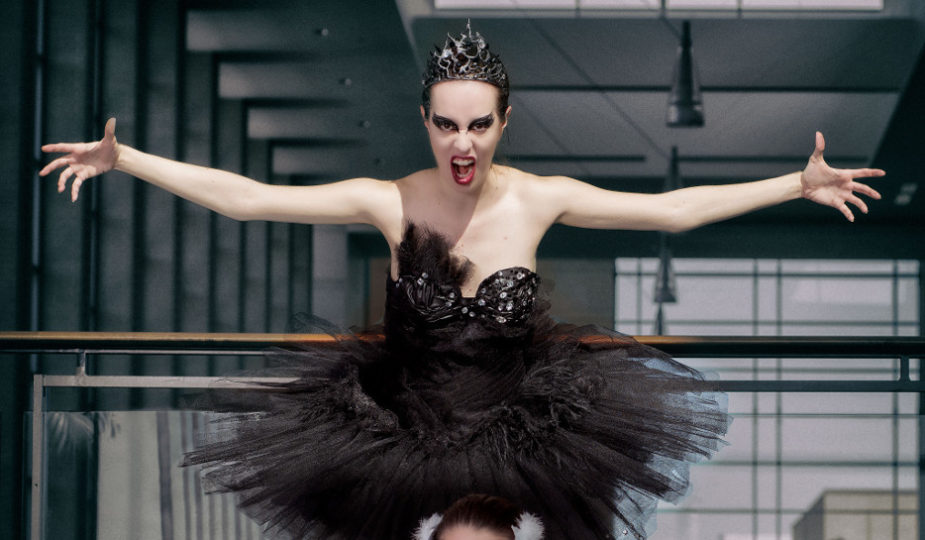
Black Swan (2010)
Director: Darren Aronofsky
We go back to 1877: it had took Piotr Ilich Tchaikovsky one year to compose the music of his first ballet adaptation entitled “Swan Lake”. A story based on the traditional German tale “The Stolen Veil” by Johan Musaus. The first live performance of Swan Lake was disastrous, critics destroyed the performance, and everything indicated that Tchaikovsky’s music was not synchronized with Julius Reisinger’s choreography.
The creators of the ballet persisted and insisted on perfectionizing the work, so they presented it on multiple other occasions after the failure and even convinced Tchaikovsky to make some changes. In 1890, a new Russian school wanted to pick up the work, so they went to ask for Tchaikovsky’s help, who no longer could support them because he died before- unknowing that Swan Lake would become a legendary ballet composition.
In 2010, the American director Darren Aronofsky was already an acclaimed filmmaker in the cinematographic sphere; his style revolves around the exaltation of obsessive human attitudes, that move around passion, terror and self-destruction. With films like Pi (1998) and Requiem for a Dream (2000), Aronofsky demonstrated his unique and brilliant cinematographic talent.
Aronofsky had the idea of making a film about Swan Lake when he watched his sister rehearse it intensely for the dance school where she had an engagement. Aronofsky was captivated by the presentation of the play at the Lincoln Center, and was deeply impressed by the duality between the Black Swan and the White Swan.
Aronofsky contacted Natalie Portman in the year 2000 to make her play a ballet dancer obsessed with the perfection of her work. This was the beginning of one of the most acclaimed films by the public and critics, a film that shocked and captivated audiences around the world. In 2010, the finished film Black Swan premiered in theaters worldwide.
The film begins with a scene in which Tchaikovsky’s music is being played. There is no cameras or audience around, but only Nina (Natalie Portman), a sweet and innocent dancer in a white dress who is playing the “White Swan”. She plays the role with extreme precision, neatness and determination. Nina has obsessively studied each dance-step of the choreography.
Suddenly, we realize that everything has been a dream when Nina wakes up with a smile on her face. It is the day of the audition at the ballet school where she practices, and she wants to play the Swan Queen (the one who plays both, the White Swan and the Black Swan), but all of her fellow dancers also want to compete for that role.
The plot unfolds behind Nina’s superhuman efforts to be the principal dancer of her ballet company. She lives in New York with her mother Erica (Barbara Hershey), with whom she has built an extremely sick relationship, based on overprotection. Nina lives and is treated like a girl, her room is a space full of pink nuances, stuffed animals and toys. Nina receives excessive harassment and pressure from her mother. She knows that her daughter has grown up, but she projects her own failed dreams on her and needs to see the fulfillment of all the frustrated projects of her own life in her daughter.
The director of the dance company (Vincent Cassel), is an arrogant and vain man who deludes, pushes, uses, and violates the intimacy of the dancers. Finally we meet Lily (Mila Kunis) who represents the infinite wall that Nina is confronted with on her way to success. Lily possesses all the qualities that Nina lacks: carefreeness, seduction, and malice.
The pressure to obtain the role of the Swan Queen begins to take over Nina and leads her to experience a series of visual and auditory hallucinations, which intensify with the dark friendship she has with Lily (she has become her main rival for the role). Nina manages to obtain the role of the Swan Queen, but fails to develop the Black Swan convincingly, since this character represents the nonexistent qualities in her, and which Lily dominates perfectly. Nina begins to feel mentally and emotionally absorbed, and falls into a deeply dark territory. Apart from hallucinations, she begins to suffer from anorexia, obsessive-compulsive behaviors, and gigantic levels of stress. Nina’s mental disorder intensifies more and more, fueled by her mother’s pressure, her feelings of inferiority, and the sexual abuse of the director of the ballet company.
Aronofsky completes his mission, and immerses us in Nina’s psychosis, creating multiple and terrifying layers of extreme adrenaline and intensity. In the end, its up to us to judge whether Nina finally reaches the long-awaited and coveted ‘perfection’ with her self-destructive performance.
by Octavio Carbajal González

Hello, just wanted to mention, I loved this blog post.
Brilliant, it’s been a while since I have seen this. Would like to watch again based on the review. Excellent Octavio!
Thank you for the highly uplifting words, Claire !. It’s just fantastic to see this big rrsponse, I’m sure you will enjoy this movie more than ever. See you around here !
Beautiful piece!
Thank you, Lana !.
Tremendous review, mental health is very important. There’s a lot of issues related to it in this anxious and depressive era that we are living. Thank you for this one !.
You’re absolutely right on that point, Adriana. Thank you for taking the time to read. This movie covers a wide variety of mental disorders, maybe this is Portman’s best performance.